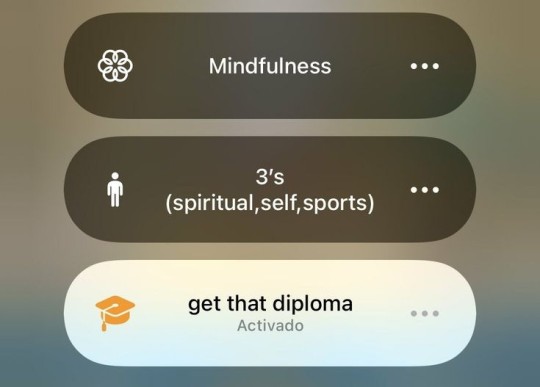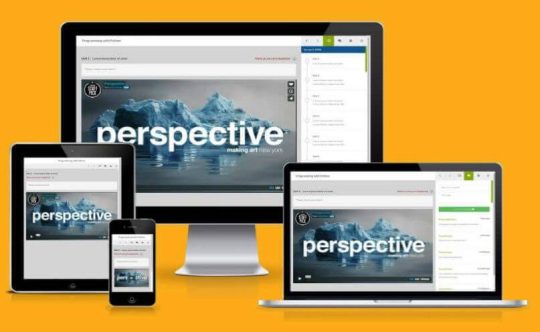#coursera clone
Explore tagged Tumblr posts
Text
Unleashing the Power of Elearning with Innovative Scripts and Apps: Creating Your Own Udemy, Coursera, LMS, and Lynda Clones
Are you ready to dive into the booming world of online education? In this article, we will explore the dynamic landscape of elearning, guiding you through the process of creating an elearning script with apps, akin to popular platforms like Udemy, Coursera, LMS, and Lynda.
Elearning Script with Apps: Transforming Learning on the Go
The core of any successful online education platform lies in its elearning script, especially when complemented by intuitive mobile applications. Integrating apps into your script not only ensures accessibility but also takes the learning experience to new heights. Imagine the ease of accessing courses, quizzes, and discussions anytime, anywhere – that’s the power of an elearning script with apps.
Udemy Clone: Your Gateway to Diverse Learning Opportunities
Udemy has set the benchmark for diverse online courses, and you can follow suit by creating your Udemy clone. Tailor your platform to offer an extensive range of courses, attracting learners with varied interests and learning objectives. With a user-friendly interface and comprehensive content, your Udemy clone can become a go-to destination for knowledge seekers worldwide.
Coursera Clone: Providing a Global Learning Ecosystem
Building a Coursera clone means crafting a global learning ecosystem. Ensure your platform offers a multitude of high-quality courses, creating an environment where learners from different corners of the world converge to enhance their skills and knowledge. Emphasize collaboration and a sense of community to truly emulate the Coursera experience.
LMS Clone: Streamlining Elearning Management with Efficiency
Your elearning venture demands an efficient Learning Management System (LMS). Develop an LMS clone that streamlines course management, making it easy for both instructors and learners to navigate through content, assessments, and progress tracking. An intuitive LMS clone is the backbone of a successful elearning platform.
Lynda Clone: Specializing in Skill-Based Learning
Lynda has carved a niche in skill-based learning, and you can do the same with your Lynda clone. Focus on curating content that enhances users' expertise across various domains. Whether it's coding, design, or business skills, your Lynda clone can become the preferred platform for individuals looking to upskill and stay competitive in their fields.
Conclusion: Creating Your Unique Elearning Identity
In conclusion, the key to a successful online education business lies in creating a unique identity. By combining an innovative elearning script with user-friendly apps and drawing inspiration from Udemy, Coursera, LMS, and Lynda, you can build a platform that stands out in the competitive elearning landscape. Start your journey today and empower learners worldwide with your distinctive elearning solution.
0 notes
Text

The Coursera clone app is a user-friendly online tutoring and education marketplace used by millions of professionals and students to learn about new topics and keep themselves updated by gaining more knowledge
0 notes
Text
issuu
Experience the power of Appysa.com Coursera App Clone! Get the same great features and functionality of Coursera but with the added benefit of customizing the app to your own unique needs. Take control of your learning experience and never miss out on the educational opportunities Coursera
Coursera App Clone
0 notes
Text



Resources and study tips to get you in cyber forensics
Master post • Part1 • part2
let's get you prepped to be a cyber sleuth without spending any cash. Here’s the ultimate tips and resources.
Ps: you can't become one while doing these pointers but you can experience the vibe so you can finally find your career interest


### 1. **Digital Scavenger Hunts**
- **CTF Challenges (Capture The Flag)**: Dive into platforms like [CTFtime](https://ctftime.org/) where you can participate in cyber security challenges. It's like playing *Among Us* but with hackers—find the imposter in the code!
- **Hunt A Killer (Digitally)**: Create your own digital crime scenes. Ask friends to send you files (like images, PDFs) with hidden clues. Your job? Find the Easter eggs and solve the case.
### 2. **YouTube University**
- **Cyber Sleuth Tutorials**: Channels like *HackerSploit* and *The Cyber Mentor* have playlists covering digital forensics, cybersecurity, and more. Binge-watch them like your fave Netflix series, but here you're learning skills to catch bad guys.
- **Live Streams & Q&A**: Jump into live streams on platforms like Twitch where cybersecurity experts solve cases in real-time. Ask questions, get answers, and interact with the pros.
### 3. **Public Libraries & eBook Treasure Hunts**
- **Library eBooks**: Most libraries have eBooks or online resources on digital forensics. Check out titles like *"Hacking Exposed"* or *"Digital Forensics for Dummies"*. You might have to dig through the catalog, but think of it as your first case.
- **LinkedIn Learning via Library**: Some libraries offer free access to LinkedIn Learning. If you can snag that, you've got a goldmine of courses on cybersecurity and forensics.
### 4. **Virtual Study Groups**
- **Discord Servers**: Join cybersecurity and hacking communities on Discord. They often have study groups, challenges, and mentors ready to help out. It's like joining a digital Hogwarts for hackers.
- **Reddit Threads**: Subreddits like r/cybersecurity and r/hacking are packed with resources, advice, and study buddies. Post your questions, and you’ll get a whole thread of answers.
### 5. **DIY Labs at Home**
- **Build Your Own Lab**: Got an old PC or laptop? Turn it into a practice lab. Install virtual machines (VMware, VirtualBox) and play around with different operating systems and security tools. It’s like Minecraft but for hacking.
- **Log Your Own Activity**: Turn on logging on your own devices and then try to trace your own steps later. You’re basically spying on yourself—no NSA required.
### 6. **Community College & University Open Courses**
- **Free Audit Courses**: Many universities offer free auditing of cybersecurity courses through platforms like Coursera, edX, and even YouTube. No grades, no stress, just pure learning.
- **MOOCs**: Massive Open Online Courses often have free tiers. Try courses like "Introduction to Cyber Security" on platforms like FutureLearn or edX.
### 7. **Scour GitHub**
- **Open-Source Tools**: GitHub is full of open-source forensic tools and scripts. Clone some repositories and start tinkering with them. You’re basically getting your hands on the tools real investigators use.
- **Follow the Code**: Find projects related to digital forensics, follow the code, and see how they work. Contribute if you can—bonus points for boosting your resume.
### 8. **Local Meetups & Online Conferences**
- **Free Virtual Conferences**: Many cybersecurity conferences are virtual and some offer free access. DEF CON has a lot of free content, and you can find tons of talks on YouTube.
- **Hackathons**: Look for free entry hackathons—often universities or tech companies sponsor them. Compete, learn, and maybe even win some gear.
### 9. **DIY Challenges**
- **Create Your Own Scenarios**: Get a friend to simulate a hack or data breach. You try to solve it using whatever tools and resources you have. It's like escape rooms, but digital.
- **Pen & Paper Simulation**: Before diving into digital, try solving forensic puzzles on paper. Map out scenarios and solutions to get your brain wired like a detective.
### 10. **Stay Updated**
- **Podcasts & Blogs**: Tune into cybersecurity podcasts like *Darknet Diaries* or follow blogs like *Krebs on Security*. It’s like getting the tea on what’s happening in the cyber world.
### 11. **Free Software & Tools**
- **Autopsy**: Free digital forensics software that helps you analyze hard drives and mobile devices. Think of it as your magnifying glass for digital clues.
- **Wireshark**: A free tool to see what's happening on your network. Catch all the data packets like you're a digital fisherman.
### 12. **Online Forensics Communities**
- **Free Webinars & Workshops**: Join communities like the *SANS Institute* for free webinars. It's like attending a masterclass but from the comfort of your gaming chair.
- **LinkedIn Groups**: Join groups like *Digital Forensics & Incident Response (DFIR)*. Network with pros, get job tips, and stay in the loop with the latest trends.
### 13. **Practice Cases & Mock Trials**
- **Set Up Mock Trials**: Role-play with friends where one is the hacker, another the victim, and you’re the investigator. Recreate cases from famous cybercrimes to see how you'd solve them.
- **Case Studies**: Research and recreate famous digital forensic cases. What steps did the investigators take? How would you handle it differently?


There you have it—your roadmap to becoming a cyber sleuth without dropping a dime. You don't have time find your interest after paying pennies to different ppl and colleges. You can explore multiple things from comfort of your home only if you want to.

#light academia#study blog#academic validation#academic weapon#student life#study motivation#study with me#study#studyblr#studyblr community#masterpostjam#codeblr
29 notes
·
View notes
Text
java full stack
A Java Full Stack Developer is proficient in both front-end and back-end development, using Java for server-side (backend) programming. Here's a comprehensive guide to becoming a Java Full Stack Developer:
1. Core Java
Fundamentals: Object-Oriented Programming, Data Types, Variables, Arrays, Operators, Control Statements.
Advanced Topics: Exception Handling, Collections Framework, Streams, Lambda Expressions, Multithreading.
2. Front-End Development
HTML: Structure of web pages, Semantic HTML.
CSS: Styling, Flexbox, Grid, Responsive Design.
JavaScript: ES6+, DOM Manipulation, Fetch API, Event Handling.
Frameworks/Libraries:
React: Components, State, Props, Hooks, Context API, Router.
Angular: Modules, Components, Services, Directives, Dependency Injection.
Vue.js: Directives, Components, Vue Router, Vuex for state management.
3. Back-End Development
Java Frameworks:
Spring: Core, Boot, MVC, Data JPA, Security, Rest.
Hibernate: ORM (Object-Relational Mapping) framework.
Building REST APIs: Using Spring Boot to build scalable and maintainable REST APIs.
4. Database Management
SQL Databases: MySQL, PostgreSQL (CRUD operations, Joins, Indexing).
NoSQL Databases: MongoDB (CRUD operations, Aggregation).
5. Version Control/Git
Basic Git commands: clone, pull, push, commit, branch, merge.
Platforms: GitHub, GitLab, Bitbucket.
6. Build Tools
Maven: Dependency management, Project building.
Gradle: Advanced build tool with Groovy-based DSL.
7. Testing
Unit Testing: JUnit, Mockito.
Integration Testing: Using Spring Test.
8. DevOps (Optional but beneficial)
Containerization: Docker (Creating, managing containers).
CI/CD: Jenkins, GitHub Actions.
Cloud Services: AWS, Azure (Basics of deployment).
9. Soft Skills
Problem-Solving: Algorithms and Data Structures.
Communication: Working in teams, Agile/Scrum methodologies.
Project Management: Basic understanding of managing projects and tasks.
Learning Path
Start with Core Java: Master the basics before moving to advanced concepts.
Learn Front-End Basics: HTML, CSS, JavaScript.
Move to Frameworks: Choose one front-end framework (React/Angular/Vue.js).
Back-End Development: Dive into Spring and Hibernate.
Database Knowledge: Learn both SQL and NoSQL databases.
Version Control: Get comfortable with Git.
Testing and DevOps: Understand the basics of testing and deployment.
Resources
Books:
Effective Java by Joshua Bloch.
Java: The Complete Reference by Herbert Schildt.
Head First Java by Kathy Sierra & Bert Bates.
Online Courses:
Coursera, Udemy, Pluralsight (Java, Spring, React/Angular/Vue.js).
FreeCodeCamp, Codecademy (HTML, CSS, JavaScript).
Documentation:
Official documentation for Java, Spring, React, Angular, and Vue.js.
Community and Practice
GitHub: Explore open-source projects.
Stack Overflow: Participate in discussions and problem-solving.
Coding Challenges: LeetCode, HackerRank, CodeWars for practice.
By mastering these areas, you'll be well-equipped to handle the diverse responsibilities of a Java Full Stack Developer.
visit https://www.izeoninnovative.com/izeon/
2 notes
·
View notes
Text
What are good ways to learn web development?
Learning web development can be both rewarding and challenging. Here are some effective ways to get started and advance your skills:
Online Courses and Tutorials:
FreeCodeCamp: Offers a comprehensive, free curriculum covering HTML, CSS, JavaScript, and more.
Codecademy: Provides interactive coding lessons on various web development technologies.
Udemy and Coursera: These platforms offer both free and paid courses on web development topics.
Books:
"HTML and CSS: Design and Build Websites" by Jon Duckett: A great introduction to the basics.
"JavaScript and JQuery: Interactive Front-End Web Development" by Jon Duckett: A follow-up for learning JavaScript and jQuery.
"Eloquent JavaScript" by Marijn Haverbeke: A deep dive into JavaScript.
Interactive Platforms:
LeetCode and HackerRank: Practice coding challenges that improve problem-solving skills.
CodePen: An online community for testing and showcasing HTML, CSS, and JavaScript code snippets.
Documentation and Official Guides:
MDN Web Docs: Mozilla’s documentation is an excellent resource for learning web technologies.
W3Schools: Offers tutorials and references on web development languages.
Build Projects:
Start with small projects like personal websites or blogs.
Gradually take on more complex projects, such as web apps or interactive websites.
Contribute to open-source projects on GitHub.
Join Communities:
Participate in forums like Stack Overflow to ask questions and help others.
Join web development communities on Reddit, such as r/webdev.
Practice and Experiment:
Regularly code and experiment with new technologies.
Try building clones of popular websites to understand their structure and functionality.
Stay Updated:
Follow web development blogs and YouTube channels.
Subscribe to newsletters like Smashing Magazine and CSS-Tricks.
By combining these resources and approaches, you can develop a solid foundation in web development and continue to grow your skills.
Full stack development course in chennai
Web developer course in chennai
Full stack training course in chennai

0 notes
Text
LMS app development companies in Saudi

BrillMindz is an LMS application development company in Saudi, driven by the mission to help companies innovate in the EdTech sector. We've helped millions of students and teachers access advanced learning experiences. So, if you have an innovative idea to build an educational app, we are here to help you. Contact us today. Every business has unique needs and every app idea deserves due care. That's why we offer a range of innovative education app development services targeting your custom needs. Are you inspired by top e-learning apps like Duolingo, Coursera and Udemy? Now, you can replicate them and disrupt the market with the help of e-learning clone app development.
Brillmindz services
LMS app development companies in Dubai
Cost to develop an app like Deliveroo
cost to develop an app in Dubai
How Much Does it Cost to Develop an App like Careem
0 notes
Text
Elevating Corporate Learning: The Role of Our Coursera Clone Script in Employee Development https://courseunity.com/elevating-corporate-learning-role-of-coursera-clone-script/ #Education #Elearning #Teaching #Learning #OutdoorLearning #Classroom #School #udemycourse #onlinecourses #onlineclasses #udemy #udemyfree #onlinecertification #courseunity
0 notes
Text
Find the Best LMS PHP Script to Start Your Own Learning Management System Like Udemy
What is Udemy Clone LMS PHP Script?
As per my knowledge LMS script is an already developed learning management code that is written in PHP. With this PHP script, you can start your own learning management app or platforms like Udemy or Coursera. Udemy Clone script is also ready-to-use code in PHP which code is similar to the Udemy app.
However, as of my last update, there were many open-source Learning Management System (LMS) platforms written in PHP that you could use as a starting point to build your own Udemy-like platform. Some popular PHP-based LMS scripts include:
Codenance: Codenance is one of the most widely used open-source LMS platforms, written in PHP. It offers a wide range of features for creating and managing online courses, user management, and assessments.
Moodle: Moodle is another popular open-source LMS written in PHP. It provides a user-friendly interface and various tools for course creation and management.
Claroline: Claroline is a simple and efficient open-source e-learning platform written in PHP, allowing instructors to create courses and manage learners.
ILIAS: ILIAS is a comprehensive open-source LMS that is written in PHP. It comes with a variety of features, including course creation, assessment tools, and collaboration features.
When building an LMS, keep in mind that it requires careful planning, security considerations, and ongoing maintenance to ensure a successful and reliable platform.
If you're not experienced in web development, you might consider hiring a professional developer or team to assist you in creating your LMS.
Remember to respect copyright laws and always check the licensing terms of any scripts or code you use as a starting point for your project. Additionally, it's crucial to verify the legality and licensing of any "Udemy clone script" you come across to avoid potential legal issues.
#lms#lms php script#udemy clone app development#udemy clone script#web development#ready to use php script#it services#laravel#php#mobile app development
0 notes
Text
Frame The Future Of E-learning Industry By Launching The Coursera Clone

When it comes to developing one’s skills, online courses are the best thing. For anyone who is looking to improve their skills or learn any skill from scratch, then apps like Coursera are the right choice. These apps are not just focused on helping users access a horde of courses but also provide the completion certificate. Course completion certificates from these reputed apps can be taken forward for interviews by the users.
Now, you too can develop an online app similar to Coursera by using the Coursera clone script. Overall, if you use the Coursera clone for developing your online education platform, you can save an excessive amount of time. Next to that, personalizations inside the app can also be made. I hope you will be interested to know about this Coursera clone. If so, continue reading.
The Coursera clone app’s notable features
Course selection - You can partner with tutors and list plenty of online courses on the app. Users will dive into the courses by choosing the category of the course.
Search bar - Users who prefer to dive into the course quickly can use the search bar, input the course and the app will list them.
Quizzes - A quick round of quizzes will help users to absorb knowledge on that particular course and also keep users engaged.
Multilingual - The foremost benefit your users will gain through the app is the multilingual feature. For users who wish to gain knowledge, language isn’t a barrier.
Course download - Every course will be downloadable by users in order to aid them in referring to it later.
Final thoughts
Since online education has become a culture, many apps are crowding the internet. You can make your app quite unique by launching the Coursera clone. And I believe that you will find this content on Coursera clone app development useful.
#Coursera clone#Coursera clone app#Coursera clone script#Coursera clone app development#Coursera like app development#Coursera app clone
0 notes
Link

#online course software#online classroom software#coursera clone#virtual classroom software for online teaching#coursera software#coursera clone script
0 notes
Link
#online course software#online classroom software#coursera clone#virtual classroom software for online teaching#coursera software#coursera clone script
0 notes
Text
A Java Full Stack Developer is proficient in both front-end and back-end development, using Java for server-side (backend) programming. Here's a comprehensive guide to becoming a Java Full Stack Developer:
1. Core Java
Fundamentals: Object-Oriented Programming, Data Types, Variables, Arrays, Operators, Control Statements.
Advanced Topics: Exception Handling, Collections Framework, Streams, Lambda Expressions, Multithreading.
2. Front-End Development
HTML: Structure of web pages, Semantic HTML.
CSS: Styling, Flexbox, Grid, Responsive Design.
JavaScript: ES6+, DOM Manipulation, Fetch API, Event Handling.
Frameworks/Libraries:
React: Components, State, Props, Hooks, Context API, Router.
Angular: Modules, Components, Services, Directives, Dependency Injection.
Vue.js: Directives, Components, Vue Router, Vuex for state management.
3. Back-End Development
Java Frameworks:
Spring: Core, Boot, MVC, Data JPA, Security, Rest.
Hibernate: ORM (Object-Relational Mapping) framework.
Building REST APIs: Using Spring Boot to build scalable and maintainable REST APIs.
4. Database Management
SQL Databases: MySQL, PostgreSQL (CRUD operations, Joins, Indexing).
NoSQL Databases: MongoDB (CRUD operations, Aggregation).
5. Version Control/Git
Basic Git commands: clone, pull, push, commit, branch, merge.
Platforms: GitHub, GitLab, Bitbucket.
6. Build Tools
Maven: Dependency management, Project building.
Gradle: Advanced build tool with Groovy-based DSL.
7. Testing
Unit Testing: JUnit, Mockito.
Integration Testing: Using Spring Test.
8. DevOps (Optional but beneficial)
Containerization: Docker (Creating, managing containers).
CI/CD: Jenkins, GitHub Actions.
Cloud Services: AWS, Azure (Basics of deployment).
9. Soft Skills
Problem-Solving: Algorithms and Data Structures.
Communication: Working in teams, Agile/Scrum methodologies.
Project Management: Basic understanding of managing projects and tasks.
Learning Path
Start with Core Java: Master the basics before moving to advanced concepts.
Learn Front-End Basics: HTML, CSS, JavaScript.
Move to Frameworks: Choose one front-end framework (React/Angular/Vue.js).
Back-End Development: Dive into Spring and Hibernate.
Database Knowledge: Learn both SQL and NoSQL databases.
Version Control: Get comfortable with Git.
Testing and DevOps: Understand the basics of testing and deployment.
Resources
Books:
Effective Java by Joshua Bloch.
Java: The Complete Reference by Herbert Schildt.
Head First Java by Kathy Sierra & Bert Bates.
Online Courses:
Coursera, Udemy, Pluralsight (Java, Spring, React/Angular/Vue.js).
FreeCodeCamp, Codecademy (HTML, CSS, JavaScript).
Documentation:
Official documentation for Java, Spring, React, Angular, and Vue.js.
Community and Practice
GitHub: Explore open-source projects.
Stack Overflow: Participate in discussions and problem-solving.
Coding Challenges: LeetCode, HackerRank, CodeWars for practice.
By mastering these areas, you'll be well-equipped to handle the diverse responsibilities of a Java Full Stack Developer.
0 notes
Link

#Build udemy clone#udemy clone#Download udemy clone#udemy clone laravel#Lynda Clone#Coursera clone#udemy script#udemy clone app
0 notes
Text
LMS app development company in Saudi

BrillMindz is an LMS app development company in Saudi, driven by the mission to help companies innovate in the EdTech sector. We've helped millions of students and teachers access advanced learning experiences. So, if you have an innovative idea to build an educational app, we are here to help you. Contact us today. Every business has unique needs and every app idea deserves due care. That's why we offer a range of innovative education app development services targeting your custom needs. Are you inspired by top e-learning apps like Duolingo, Coursera and Udemy? Now, you can replicate them and disrupt the market with the help of e-learning clone app development.
Brillmindz services
Cost to develop an app like Deliveroo
cost to develop an app in Dubai
Cost to Develop an App like Careem
Cost to develop an app like Talabat
0 notes
Link
Learn On Air is an online tutoring script & virtual classroom software from Linkwell Systems nothing but udemy clone script, bigbluebutton clone script, lynda clone script, coursera clone script available for Free and Encrypted package so that you can build online education management system shortly.
#udemy-clone#udemy-clone-script#udemy-clone-app#lynda-clone#lynda-clone-script#coursera-clone#coursera-clone-script#online-tutoring-script#online-tutoring-software#php-clone-script#app-clone-script#readymade-clone-scripts#ready-made-app-clone-scripts#online-education-management-software#live-course-app#virtual-classroom-software#bigbluebutton-clone#bigbluebutton-clone-script
2 notes
·
View notes